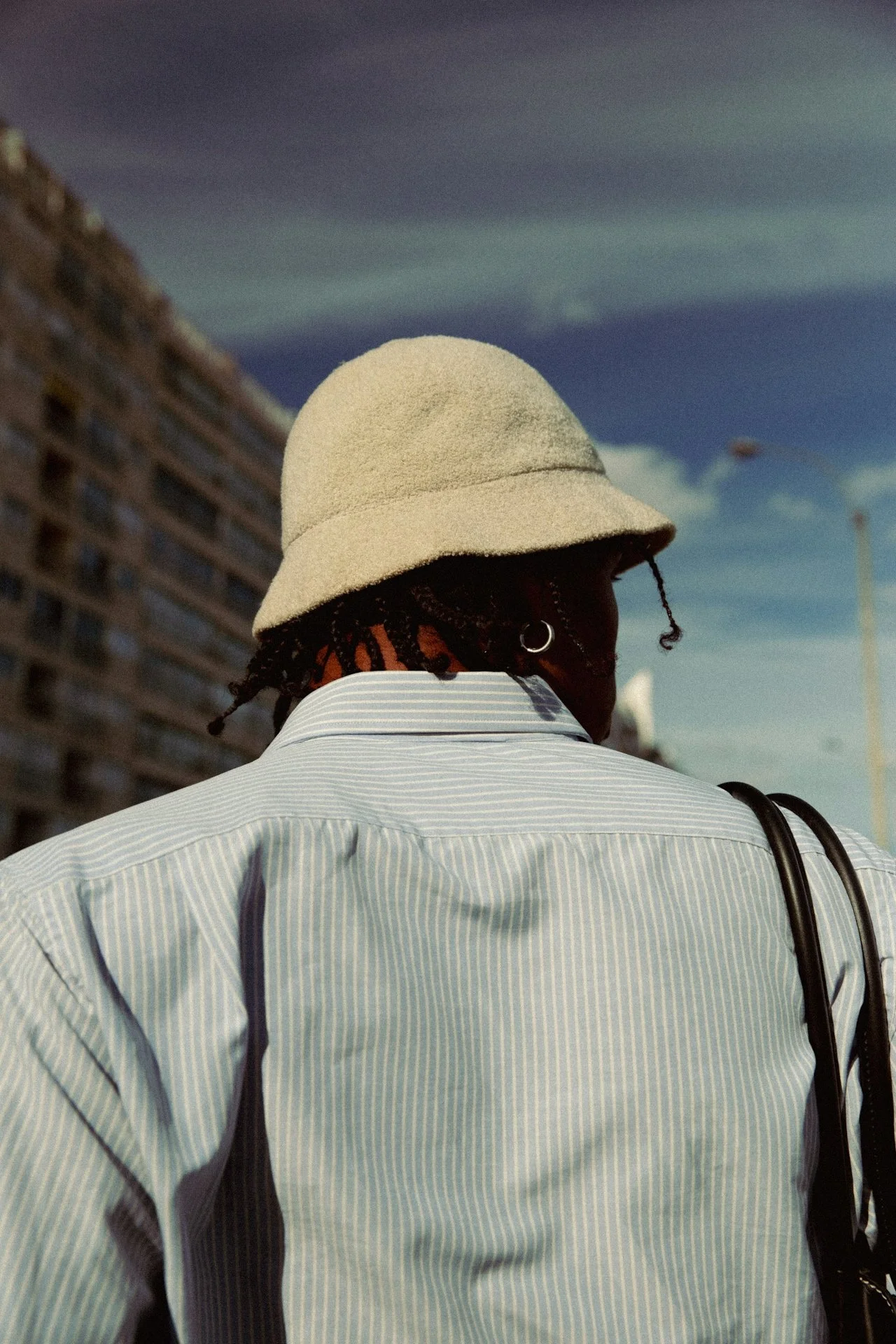Yes, Men Cycle Too: The Daily Rhythm Your Body Follows
That afternoon wall is not actually about discipline. What’s happening there, is your testosterone is crashing. Your body has a rhythm. Following it is how you stay fit and whole.
If you can't focus after 2pm, your testosterone is crashing. Men don't have a monthly cycle like women do—you have a daily cycle that peaks in the morning and declines through the day.
Your body follows a 24-hour rhythm. Testosterone surges at dawn. By mid-afternoon, it drops. This is how you're designed.
what you're actually feeling
You know this feeling.
You wake up ready. Clear-headed. Sharp. The world feels possible. You move through your morning like you could build anything—difficult decisions come easy, complex problems untangle, your body wants to move.
Then afternoon hits.
The clarity fogs. Things that would've taken twenty minutes this morning now feel impossible. You stare at your screen. You reach for more coffee. You wonder what's wrong with you.
By evening, you're different again. Slower. Softer. The drive that pushed you through the morning is gone. You want rest. Connection. To finally stop.
You've been taught this is about productivity hacks or willpower. That successful people push through while you're giving up. That the afternoon slump means you need better habits, more discipline, another cup of coffee.
Your body is following the rhythm it's followed your entire life.
the 24-hour cycle
Women cycle with the moon. You cycle with the sun.
Your testosterone peaks between 6-9am. Everything sharp comes easy—difficult decisions, complex thinking, physical exertion, challenging conversations. Your body wakes with the sun. Your body says "now."
This is when you're meant to meet the world. To build. To pursue. To show up with everything you are—for your work, for her, for the life you're creating.
By mid-afternoon, the sharpness dulls. Your body moves from action to rest. Energy turns inward. Focus scatters. The edge softens.
This happens every single day. This is how you work.
By evening, you're in a different state entirely. Testosterone at its lowest. Your body doesn't want more—it wants rest. To connect. To feel what happened during the day instead of just pushing through to the next one.
You're not the same at 8am and 8pm. Morning is when you're directional. Evening is when you're tender. Both matter. And your body has been trying to show you this your entire life.
what modern life demands
Industrial schedules don't care about your testosterone cycle.
You're expected to perform equally well at 9am and 4pm. To make important decisions in afternoon meetings when your body's already descended. To hit the gym after work when your testosterone is at its lowest. To stay sharp through evening calls when your body is asking for rest.
The 9-5 was designed around factory production, not human rhythms. It assumes you're a machine running at one speed.
You're not a machine. You, too, have cycles.
This is why afternoons feel like fighting yourself. Because you are. You're trying to force morning-level sharpness from a body that's already moved into rest mode.
The discipline you think you're lacking wouldn't change this. Your body has a rhythm. Ignoring it doesn't make you productive—it depletes you. And depletion costs you everywhere. Your presence. What you have to give.
working with your rhythm
Your body peaks in the morning. This is when you have everything—clarity, strength, drive, sharpness.
Use it for what matters. The difficult conversation you've been avoiding. The decision that requires your full self. Physical training. The creative work that needs your best thinking. Showing up for her with presence instead of depletion.
Don't waste morning energy on things that don't require it. Emails can wait. Scrolling can wait. Afternoons exist for a reason.
By afternoon, your body isn't asking you to conquer. It's asking you to shift. Collaborative work. Easier things. Planning instead of executing. Your body is recovering—let it.
This is the rhythm. And fighting it just means you show up depleted tomorrow morning when you actually need that energy.
Evening isn't for grinding. Your testosterone is low. Your body wants connection, pleasure, rest. This is when you're supposed to feel—to be present with her, to actually taste your food, to let yourself slow down.
You need morning's direction. You also need evening's tenderness. Both make you whole.
what this looks like
Wake early. Your body peaks then—use it for what actually matters. Train your body. Do the hard thinking. Have the difficult conversation. Build something. Make the decision you've been avoiding.
By afternoon, shift. Lighter work. Collaboration. Planning, not execution. Your body is recovering—let it. This is the rhythm.
Evening is for winding down. Real food. Connection. Rest. Not forcing yourself through one more thing when your body is asking for recovery.
This is when you're tender. When you can feel. When you have space for pleasure instead of just pushing through.
Sleep before 11pm when melatonin rises naturally. Wake when the sun does. Your body follows light, not your alarm preferences.
You have a rhythm. It's been there all along. Now you can stop fighting it.
Working With Your Daily Rhythm
Morning - when you're at your fullest The hard conversation. The decision you've avoided. Train your body. Do the difficult thinking. Build something.
Afternoon - when your body descends Collaborative work. Planning, not executing. Lighter things. Emails live here. Your body is recovering—let it.
Evening - when your body rests Real food. Presence with her. Connection and pleasure. Not one more thing. Sleep before 11pm.
Your body peaks in the morning and recovers by evening. Follow it.
what this actually means
Understanding that you, too, have cycles, changes things.
Your morning energy isn't just for productivity. It's for showing up—for your purpose, for your partnership, for building the life you're meant to live. It's when you're strong, directional, clear.
Your evening descent is when you become tender. When you can connect. When you can feel instead of just doing.
You need both. Direction and devotion. Strength and softness. Morning drive and evening presence.
Industrial culture wants you at the same intensity all day—which means you're either forcing yourself through depletion or shutting down completely. Neither lets you be whole.
The man who honors his rhythm is the one who shows up fully in the morning and stays human by evening. Who pursues purpose without grinding himself into depletion. Who has energy left for connection because he didn't waste it fighting his own biology.
This is how you grow into a tree instead of hardening into a rock. Strong when it matters. Tender when it matters. Both.
the rhythm
Every morning you've woken up ready. Every afternoon you've hit that wall. Every evening you've wanted to slow down instead of push through.
Your body has been showing you this rhythm your entire life.
The mornings when everything felt possible. The afternoons when the same things suddenly felt impossible. The evenings when you just wanted to rest instead of conquering one more thing.
You've been living it every single day. Now you have the language for it.
Your body has a rhythm. Following it isn't weakness. Fighting it is what's been draining you. And that drain shows up everywhere—in your work, your partnership, in being both strong and tender.
Morning makes you directional. Evening makes you tender. You need both to be whole.




